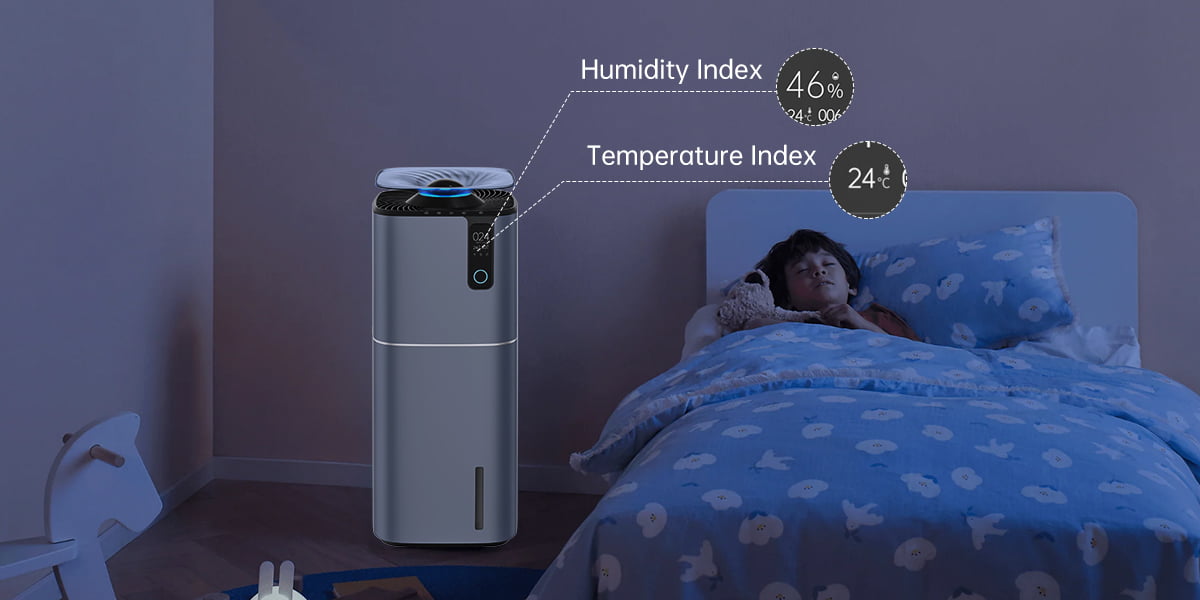How Air Quality Effects Your Sleep?
Air quality can have a significant impact on the quality of your sleep. Poor air quality can cause a range of health issues, including respiratory problems, allergies, and asthma, which can all interfere with your ability to sleep well. Here are some ways in which air quality can affect your sleep:

Allergies: Pollen, dust mites, and pet dander can all trigger allergies, which can cause congestion, sneezing, and itchy eyes, making it difficult to fall asleep and stay asleep.
Asthma: Poor air quality can trigger asthma symptoms, such as wheezing and coughing, which can disrupt sleep.
Respiratory problems: Poor air quality can irritate the respiratory system, causing coughing, shortness of breath, and other symptoms that can interfere with sleep.
Snoring: Poor air quality can cause congestion and inflammation in the nasal passages, which can lead to snoring, disrupting your own sleep and that of your partner.
Humidity: High humidity levels can make it difficult to sleep by causing discomfort and making it harder to breathe. Low humidity levels can cause dry skin, dry throat, and nasal irritation, which can also affect sleep quality.
Temperature: The temperature of your bedroom can also affect your sleep quality. A room that is too hot or too cold can make it difficult to fall asleep and stay asleep.

Noise: Poor air quality can also be associated with noise pollution, which can disrupt sleep. Noise from traffic, neighbors, or other sources can make it difficult to fall asleep and stay asleep.
To improve air quality and promote better sleep, it is important to keep your bedroom clean and well-ventilated. This includes regularly washing bedding and vacuuming carpets and rugs. Using an air purifier can also help to remove pollutants from the air, creating a cleaner and healthier sleeping environment. Additionally, maintaining a comfortable temperature and reducing noise can also help to promote better sleep.



